CORPUS explores the mass adulation and explosive posthumous recognition of Selena Quintanilla, the Tejano rock singer murdered by the president of her fan club in 1995. Pushing beyond the mainstream media's fascination with her violent death, Portillo interviews Selena's family and friends as well as the devoted fans that pilgrimage to Selena's grave in Corpus Christi, Texas, to pay homage to the slain star. Moving and provocative, this humble investigative portrait explores Selena's cultural significance as a pop icon and shines a light on the hopes, fantasies, fears, and realities of young Latinas today.
Related Movies

Dominguinhos (2014)
Through rare and precious footages and gigs with great artists such as Gilberto Gil, Gal Costa, Hermeto Pascoal, Djavan, Nara Leao, Luiz Gonzaga, among many others, "Dominguinhos" reveals this genius of Brazilian music, creator of a deeply authentic, universal and contemporary work. The film values the sensory cinematic experience, a journey driven by Dominguinhos his own.

Going Varsity in Mariachi (2023)
A year in the life of an underdog competitive high school mariachi band in the Texas borderlands.

Attacking the Devil: Harold Evans and the Last Nazi War Crime (2014)
Before the internet. Before social media. Before breaking news. The victims of Thalidomide had to rely on something even more extraordinary to fight their corner: Investigative journalism. This is the story of how Harold Evans fought and won the battle of his and many other lives.
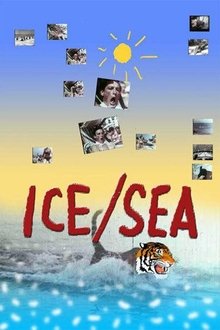
Ice/Sea (2005)
Funny collage of sea, sun and ice. A show from the beach with skiers, tigers, mermaids and much more.

Guitar (1988)
A vibrant kaleidoscopic tribute to the guitar that meshes dance, mime, visual art, and virtuoso performances to create a spectacular yet intimate celebration of the instrument. For one exciting week the city of Toronto plays host to the International Guitar Festival. The streets echo with the sounds of the instrument as the great masters from every tradition gather to play for each other -- John Williams from England, Leo Brouwer from Cuba (classical), Turibio Santos from Brazil (folk), Vladimir Mikulka from Czechoslovakia (avant-garde), Rik Emmett and Kim Mitchell from Canada, Steve Morse from the USA (rock).

The Story of Mothers & Daughters (1997)
This poignant documentary from directors Judith Leonard, Catherine Ryan and Gary Weimberg explores the rich complexity of mother-daughter relationships as told by women themselves in scores of candid interviews. Honoring the sometimes close, sometimes fractious, but always vital link moms share with their girls, this film celebrates how these relationships evolve in stages from birth through adulthood to the end of life.
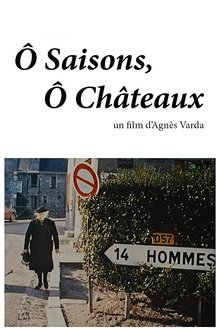
O Seasons, O Castles (1958)
A short documentary on the chateaux of the Loire in France was commissioned by the French Tourist Bureau.
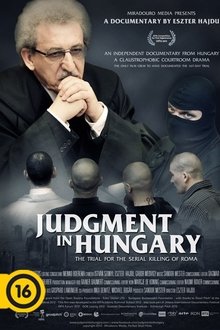
Judgement in Hungary (2013)
Hungary was the site of serial murders on ethnic basis. Over the course of one year, the murderers killed and seriously injured Roma children and adults. The state charged 4 men with committing the crime with racial motivation. This historical trial started March, 2011, and ended August, 2013 in Budapest. The 167 days of hearings was only documented continuously by our crew. We had exclusive permission to use multiple cameras in the court-room. The film is a classical chamber-drama, taking place in a small, claustrophobic court room, in the middle of Europe. What will be the outcome of the marathon, 3 year-long trial?

Chronicle of a Dream (2006)
October 2004. Uruguay. After three years away Mariana returns to her country to be reunited with her family and also to vote. After the economic crisis that plunged the country into a terrible depression, Uruguay is on the brink of a real change. We are shown day to day life in Melo, a small provincial city, we are given an intimate insight into a family of militant leftists, and we accompany a Latin American people in the month leading up to a historic political event: the first ever election victory in Uruguay of a party from the political left, the Frente Amplio.

After the Apology (2017)
Suellyn thought the Department of Community Services (DOCS) would only remove children in extreme cases, until her own grandchildren were taken in the middle of the night. Hazel decided to take on the DOCS system after her fourth grandchild was taken into state care. Jen Swan expected to continue to care for her grandchildren but DOCS deemed her unsuitable, a shock not just to her but to her sister, Deb, who was, at the time, a DOCS worker. The rate of Indigenous child removal has actually increased since Prime Minister Kevin Rudd delivered the apology to the ‘stolen generations’ in 2008. These four grandmothers find each other and start a national movement to place extended families as a key solution to the rising number of Aboriginal children in out-of-home care. They are not only taking on the system; they are changing it…

The Rape of Recy Taylor (2019)
Recy Taylor, a 24-year-old black mother and sharecropper, was gang raped by six white boys in 1944 Alabama. Common in Jim Crow South, few women spoke up in fear for their lives. Not Recy Taylor, who bravely identified her rapists. The NAACP sent its chief rape investigator Rosa Parks, who rallied support and triggered an unprecedented outcry for justice. The film exposes a legacy of physical abuse of black women and reveals Rosa Parks’ intimate role in Recy Taylor’s story.

Uncle Yanco (1967)
While in San Francisco for the promotion of her last film in October 1967, Agnès Varda, tipped by her friend Tom Luddy, gets to know a relative she had never heard of before, Jean Varda, nicknamed "Yanco". This hitherto unknown uncle lives on a boat in Sausalito, is a painter, has adopted a hippie lifestyle and loves life. The meeting is a very happy one.

All Access To Rossa 25 Shining Years (2024)
All Access to Rossa: 25 Shining Years tells the story of the life and career of Rossa, a prominent Indonesian pop diva. This documentary film offers a multifaceted overview of Rossa's journey, covering her musical achievements, personal challenges, family dynamics, and the ups and downs of her efforts in building her career over 25 years. The inclusion of a grand concert celebrating Rossa's 25 years of success adds grandeur and joy, making it informative and entertaining. Overall, this is a cinematic experience that touches the heart, celebrating the timeless legacy of one of Indonesia's most beloved music icons.

Summer of Love (2018)
American Experience presents Summer of Love, a striking picture of San Francisco's Haight Ashbury district during the summer of 1967 -- from the utopian beginnings, when peace and love prevailed, to the chaos, unsanitary conditions, and widespread drug use that ultimately signaled the end. Academy Award-nominated filmmakers Gail Dolgin and Vicente Franco (Daughter from Danang) examine the social and cultural forces that sparked the largest migration of young people in America's history.
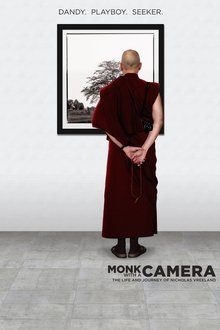
Monk with a Camera (2014)
Nicholas Vreeland walked away from a worldly life of privilege to become a Tibetan Buddhist monk. Grandson of legendary Vogue editor Diana Vreeland and apprentice of photographer Irving Penn, Nicholas' life changed drastically upon meeting one of the Dalai Lama's teachers. Soon thereafter, he gave up his glamorous life to live in a monastery in India, ultimately returning to his roots in photography to help his fellow monks rebuild their monastery.
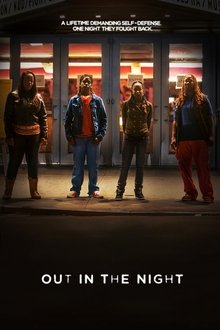
Out in the Night (2014)
Under the neon lights in a gay-friendly neighborhood of New York City, four young African-American lesbians are violently and sexually threatened by a man on the street. They defend themselves against him and are charged and convicted in the courts and in the media as a 'Gang of Killer Lesbians'.
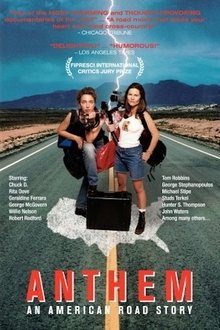
Anthem (1997)
When twenty-six-year-olds Shainee Gabel and Kristin Hahn quit their Hollywood jobs, packed up a borrowed car and hit the road, it was with the deeply felt conviction that somewhere, shrouded in the din of talk shows and tabloid headlines, they'd discover the real America, alive and well in all of its regions and demographics.
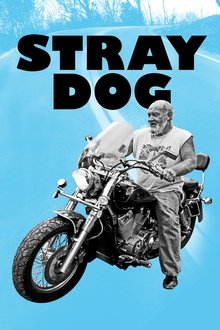
Stray Dog (2014)
A portrait of Ron "Stray Dog" Hall, an aging biker and RV park manager from southern Missouri. A man who has been permanently altered by his tours of duty in Vietnam, who has come to terms with himself and acquired a rare wisdom and patience in the process, and who is now dedicated to helping his friends, his loved ones, and his fellow vets.
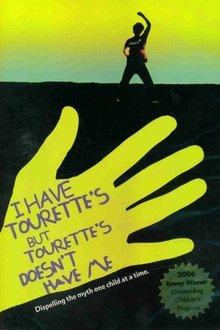
I Have Tourette's But Tourette's Doesn't Have Me (2005)
This insightful Home Box Office documentary profiles some American children afflicted with Tourette's syndrome -- a hereditary neurological disorder manifested by recurrent, involuntary vocal and motor tics. More than a dozen youngsters ranging from ages 6 to 13 discuss the stigma of Tourette's, what it's like to grow up with the condition, control measures and the challenges they face to be viewed as normal.
